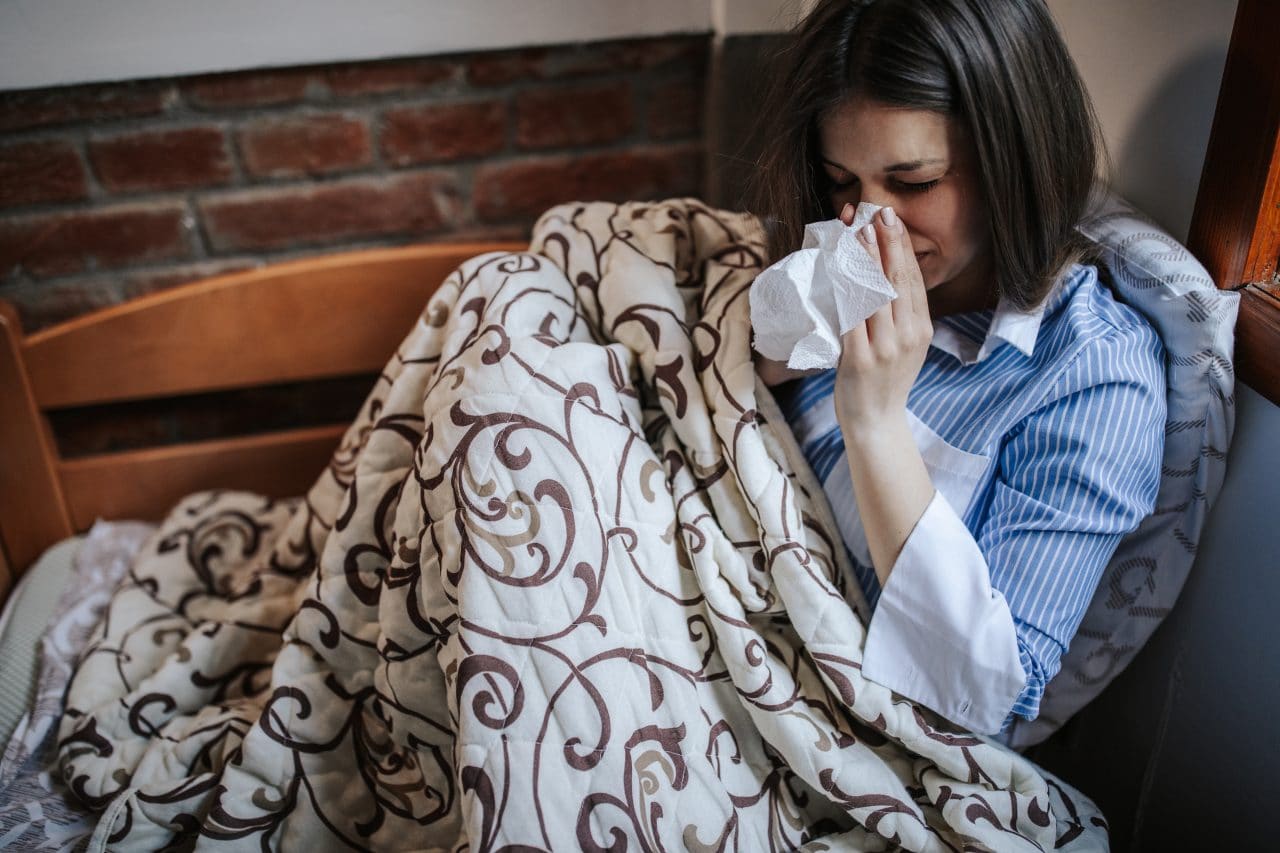In the Before Times, a scratchy throat or stuffy nose during this time of year was almost certainly allergies. But now that we’re living in the age of COVID-19, you can’t be too cautious. No matter how careful you are when masking up and socially distancing, it’s still possible to catch the virus at the Salem Saturday Market if you’re not fully vaccinated.
Below we review the symptoms of COVID-19 and seasonal allergies so you can decipher which is the most likely culprit behind your symptoms.
COVID-19 Symptoms

It seems like every week we learn about a new COVID symptom or side-effect. Currently, the CDC lists the following symptoms:
- Fever or chills.
- Cough.
- Shortness of breath or difficulty breathing.
- Fatigue.
- Muscle or body aches.
- Headache.
- New loss of taste or smell.
- Sore throat.
- Congestion or runny nose.
- Nausea or vomiting.
- Diarrhea.
The hallmark signs of COVID include a dry cough, fever, body aches, loss of taste and smell, and gastrointestinal problems. If you experience one or a combination of these symptoms, get tested right away.
Allergy Symptoms
Allergy symptoms are caused by your immune system overreacting to a normally harmless substance by producing histamine. Histamine causes you to experience:
- Runny nose.
- Congestion.
- Sore or scratchy throat.
- Cough.
- Shortness of breath.
- Itchy, watery, red eyes.
- Sneezing.
If you experience a cough from allergies, it’s usually the result of postnasal drip and contains phlegm rather than being dry. If you experience other symptoms like itchy eyes or sneezing, you can rest assured your symptoms are likely the result of allergies.
When to Seek Help
If this guide doesn’t clear up what condition your symptoms are related to, the best thing to do is consult with your physician. They can ask you questions about the nature of your symptoms and possible exposure to COVID in order to decide if you should be tested.
If you experience any of the following symptoms, seek immediate medical attention:
- Trouble breathing.
- Persistent pain or pressure in the chest.
- New confusion.
- Inability to wake up or stay awake.
- Pale, gray, or blue-colored skin, lips, or nail beds (depending on skin tone).
For more information or to schedule an appointment with an allergist, call Willamette Ear, Nose, Throat and Plastic Surgery today.
Learn More About Allergies
- How Spring Allergies Affect Your Ears
- Is Climate Change Making Your Allergies Worse?
- The Creation of Allergy-Free Wheat and Peanuts
“Dr. Strand is wonderful. In fact, all the staff are just the best. Personable, and to the point. You will be well cared for at Willamette ENT.”